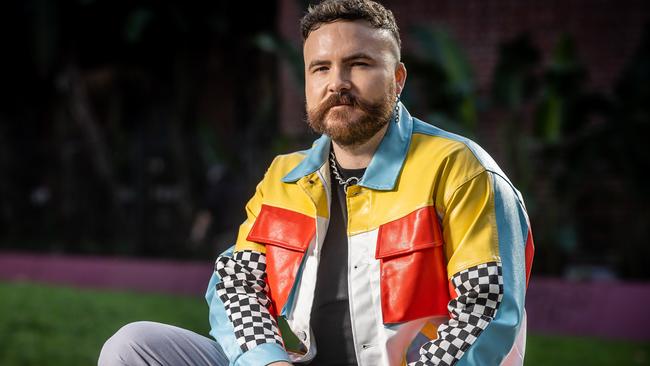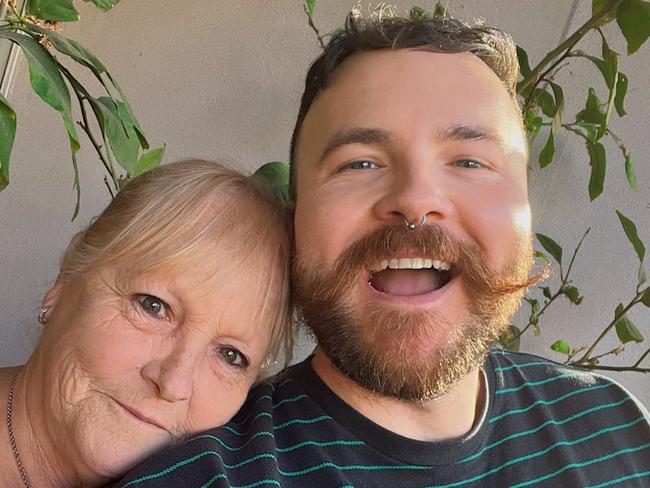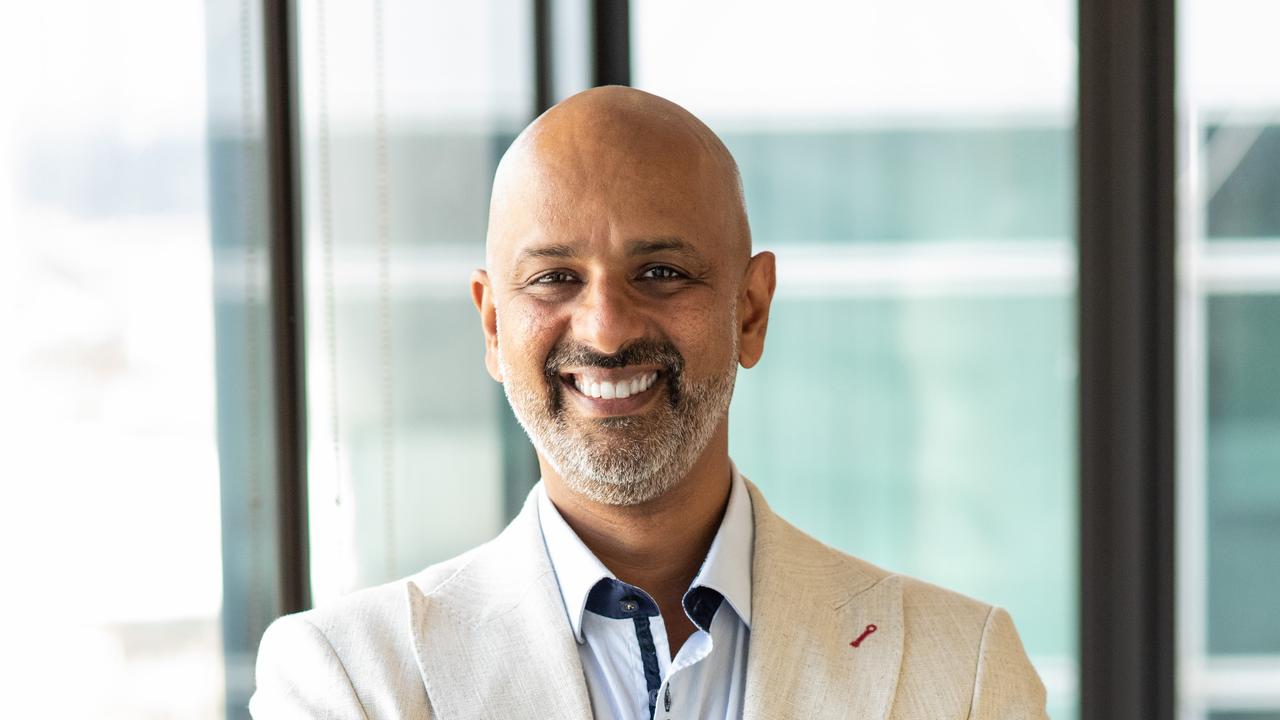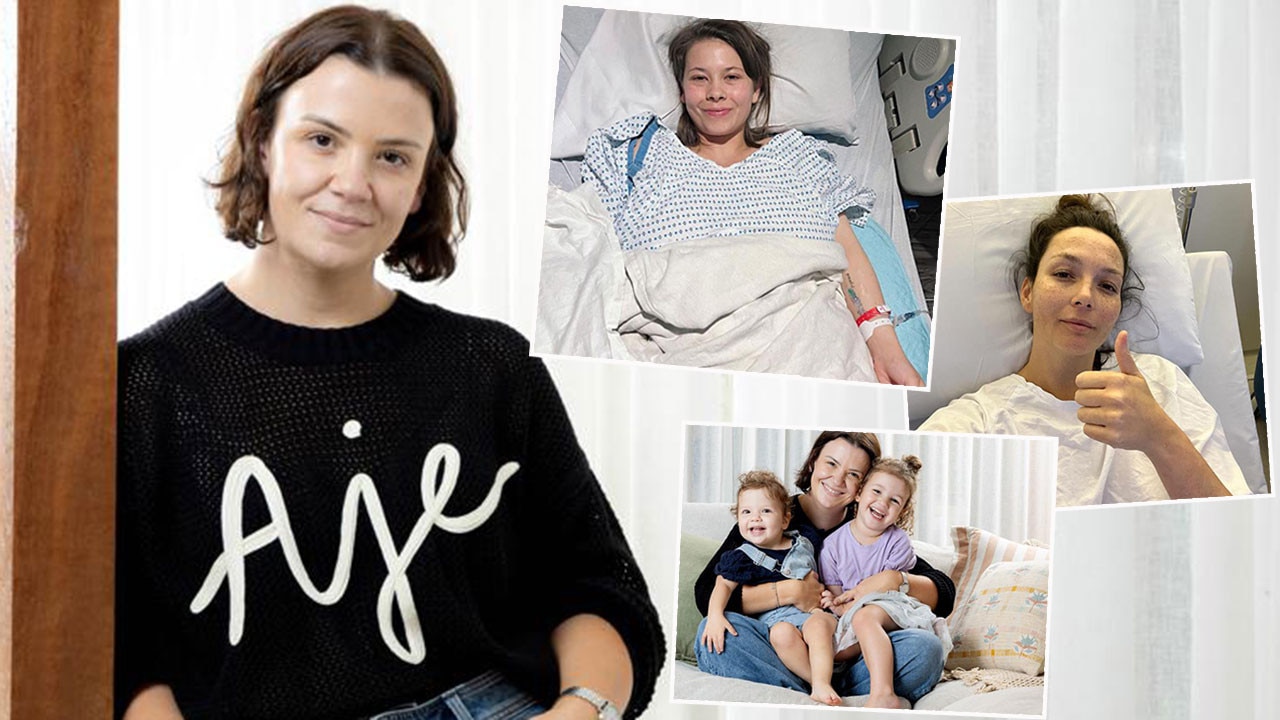Brad Guy shares harrowing story of surviving traumatic skydiving accident
Brad Guy vividly remembers the terrifying moment he jumped out of a plane before not one but two parachutes failed to open and he plummeted towards the Yarra Valley below at 80km/h.

VWeekend
Don't miss out on the headlines from VWeekend. Followed categories will be added to My News.
Brad Guy still remembers the moment he thought he was going to die.
It was a sunny day in Victoria’s picturesque Yarra Valley – 25 degrees and not a cloud in the sky.
He was hurtling towards the earth at the speed of a car travelling on a freeway during a freak skydiving accident.
Nearly 10 years later, Brad describes himself as a survivor – and not just because he made it out alive that fateful day, but because he has made it through every day since.
“It feels too fresh for it to have been a decade ago,” Brad says.
“That’s what’s been so daunting about the trauma is that I still remember it so vividly.”
After jumping out of a plane flying 4.57km over the Yarra Valley in August 2013, Brad’s parachute failed to open and the tandem instructor’s reserve parachute became tangled.
The pair plummeted towards the ground, crashing into the earth at a speed of 80km/h, with Brad’s mum Julie, dad Brian and family watching on.
“I have very visceral memories but also a lot of fuzzy memories,” he explains.


“I remember what it sounded like, what my body felt like and the overwhelming emotion – I felt guilt even in the moment.
“Because your body goes through this physiological rewiring, they’re the memories I draw upon, so it’s still very fresh, and I can’t believe it’s been 10 years.”
Just two weeks after turning 22, Brad had torn ligaments in his neck, fractured his lower spine and completely broke his upper spine, while his skydiving instructor suffered lower body injuries.
Brad recalls not being able to feel his legs or his back on the way to Melbourne’s Alfred Hospital, where he spent four days with his family by his side.
He was fitted with a neck and back brace, then sent home to begin the seven-month process of learning to walk, sit up straight and drive again.
But Brad says the real healing began after he recovered from his physical injuries – depression, post-traumatic stress disorder and night terrors were just some of the emotional impacts he has learned to live with.


Previously known to his friends and family as an adrenaline junkie and the life of the party, Brad morphed into a shell of his former self in the months following the accident.
He suffered from bouts of guilt, blaming himself for subjecting his family to such a traumatising ordeal, and says it was too much of a burden for a formerly enthusiastic and carefree guy in his early 20s to bear.
Now 31 years old, Brad has come a long way but says he is still healing.
“If you’d asked me five years ago, if this is still going to be such a big impact in my life, I wouldn’t have believed you. I would have thought, surely after 10 years it will have gone away,” he says. “It didn’t happen straightaway – I think what people see now is very different to what I went through 10 years ago, so it’s completely different.
“There’s never an end of an end in sight when it comes to healing – I’m going forever, I’m still in recovery.”
A big part of that healing process was writing Freefall – a book that details Brad’s journey from the day of the unfathomable skydive to how he has taken back control of his life 10 years later.

“I’m trying to shift the narrative away from being this crazy victim of this miraculous thing and more to the survivor – the recovery, the aftermath – because to me, that’s more the story than the headline,” he explains.
“The real story was how people bounce back from their trauma – and it doesn’t have to be a skydive, it can be a really bad job, an abusive relationship or a traumatic birth.
“But the aftermath for most people is the same and anyone that can get through trauma and be better off the other side is a hero, so they should pat themselves on the back.”
While writing Freefall began as a coping mechanism for Brad, the book morphed into a tool aimed at helping others deal with their own trauma.
“When I was going through all my trauma, I felt so isolated and because I went through something so unique, I couldn’t really relate to anyone about it,” Brad says.
“I victimised myself for a long while where I wasn’t really coming to terms with my recovery – I don’t think the recovery really started until maybe like five years ago. I really put it off.
“I wanted to give back to other people – if they’re going through something like what I went through, or someone in their life is in that position, I want them to know that there is another side and what you go through is a completely normal reaction.”
Brad says he wanted to provide other people who were suffering from trauma with tangible and practical tools to help navigate their recovery, including mindfulness strategies and grounding techniques.

“I got so much advice during my recovery that I couldn’t really integrate into my life. A lot of people would say, ‘oh, just be mindful if you want to reduce your triggers’. I’m like, what does that even mean?” Brad laughs.
“That isolation can be very scary, but I needed something practical there as well. I am not a clinician, I’m not a doctor, but I’ve picked up things through my therapy that I found super helpful.”
Brad admits it wasn’t easy recounting some of his darkest days in the book.
“Revisiting the trauma when writing the book – it was chaos, mayhem, hysteria,” he says.
“A big part of that was meeting with the tandem instructor after nine and a half years. We had not touched base since that day, and even meeting up with him – which was very confronting – I still learned so much about what actually happened that day.
“I started writing because I thought I was finished, I thought I was properly healed, but revisiting all the trials and tribulations when writing made me realise that I still had so much work to do, and at first that was very hard to come to terms with.”
Since the incident, Brad has undergone countless therapy sessions – some successful, and some where he describes himself as “a hysterical mess”.
“We did a lot of cognitive (behavioural) therapy (CBT) – that is basically breaking the experience down and building it back up again. I was like, borderline catatonic,” he says.
“I couldn’t catch planes, I couldn’t be on a balcony, I couldn’t wind down the window of my car without hearing wind and being triggered – everything was so fearful. I couldn’t even say the word skydive at a point and the CBT was about basically taking all these trigger points that we knew about and rewiring them so it’s no longer a fear-based thing – it’s just a reaction that I can control, it’s about being mindful and grounding myself.”
When Freefall was finally released last month, Brad said he felt truly happy for the first time in his life.
“I finally feel like my head’s above water and I’m not consumed by my trauma anymore, and I’ve been able to turn it around and actually use it as strength,” he says.
“And it’s really hard to believe, but I’m thriving – I’ve been able to travel the world, I’ve got an amazing relationship, I love my family, I’m ambitious – like, everything I want to do is going to happen.”

Despite spending years attempting to disconnect himself from the skydiving accident, Brad says that day and the trauma that followed will always be part of his life.
“For many years I tried to wish it away … but the scars are still so fresh. It’s actually those scars that kind of propelled me forward because I know I can tackle anything now. I think I’ve gone through the worst,” he says.
“The trauma and the accident has kind of been the biggest blessing because it’s given me the strength to draw upon the belief that I can actually do anything I want to.
“I’m grateful to be alive and that’s special.”
As Brad approaches 10 years since that fateful day, he finds it impossible to imagine a world where he never jumped out of that plane.
Brad, who now lives in Melbourne, plans to celebrate the milestone in his hometown of Pyalong, in central Victoria, – completely alone with his thoughts.
“I’ve got my day planned, and I know what I’m going to do. I’m going to go to the town where I grew up and I’m going to go to my favourite spot where you can just see hills for kilometres and kilometres – it’s such a beautiful spot and that’s a really big place in my life. That’s where I go to reconnect,” Brad smiles.
“Every year I used to make a post on Instagram that this happened to me five years ago, six years ago, and then I stopped doing it because I would hate the attention. There are all these questions now at 10 years – it’s a big milestone, so I’m just going to celebrate it and feel strong and feel good.”
Brad still remembers the skydive like it happened yesterday – he can recall the retching feeling in his stomach as he plummeted towards earth, the pain of hitting the ground, and the months of physical therapy that followed before he was given the all clear to walk again – but after writing a book, he sees things a little differently.
“I think the real survival is not just surviving that day, but continuing to survive 10 years later,” Brad says.
“It’s weird now with the book because (the accident) has re-entered my life … so that’s been very surreal. Before it was something I hid away I kept it very secretive. I’d talk about it here and there, but never on this sort of magnitude.
“So having the book here 10 years later, it’s still very unbelievable. There’s never an end in sight when it comes to healing. I’m still in recovery and that’s a beautiful thing.” ■


